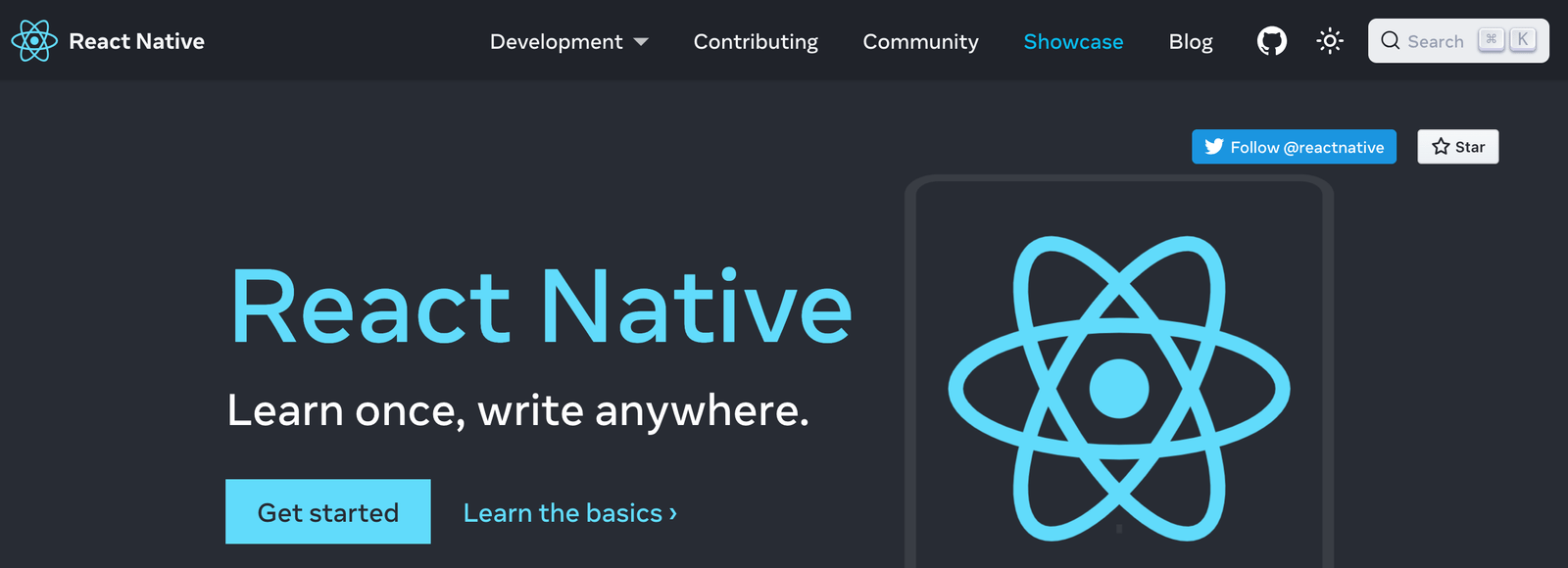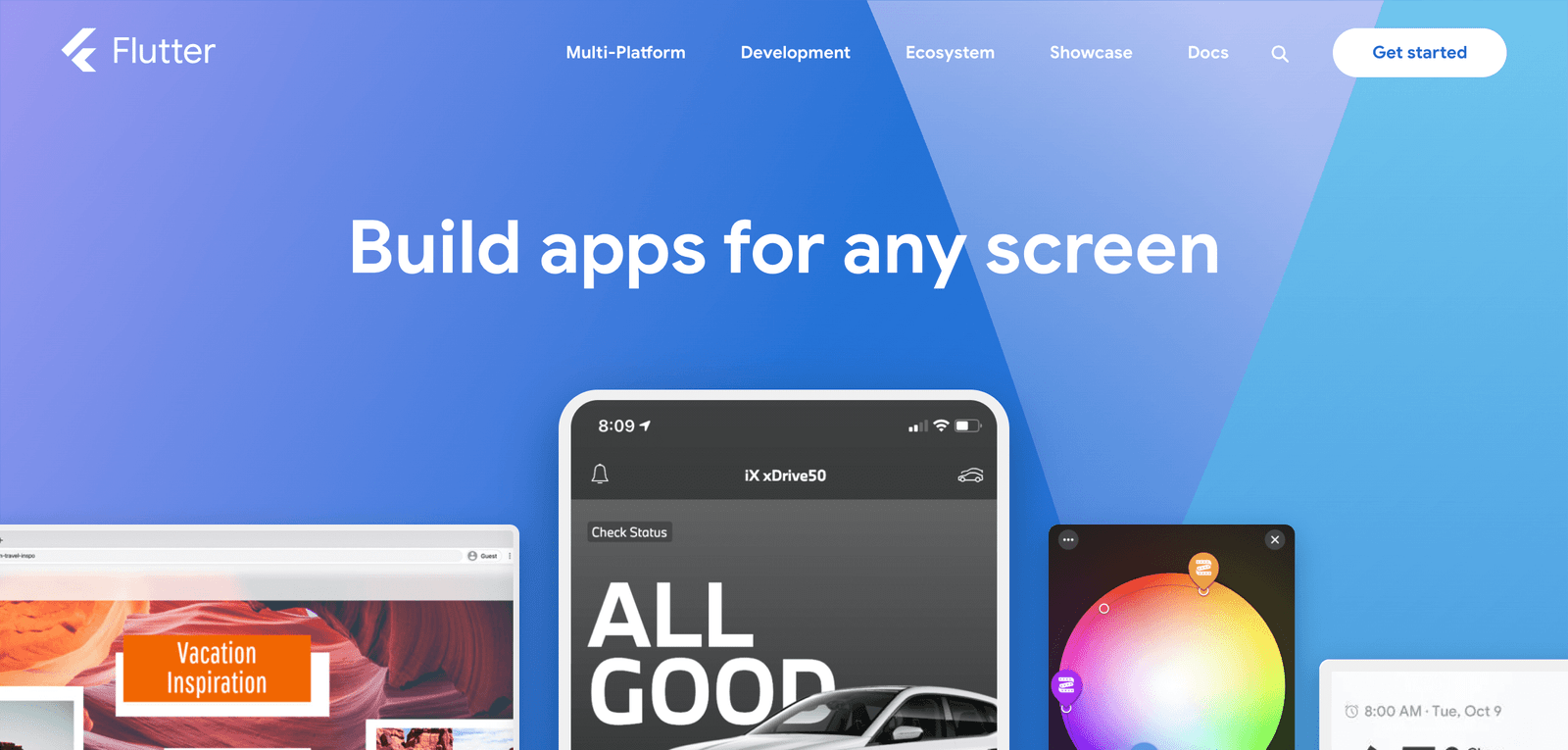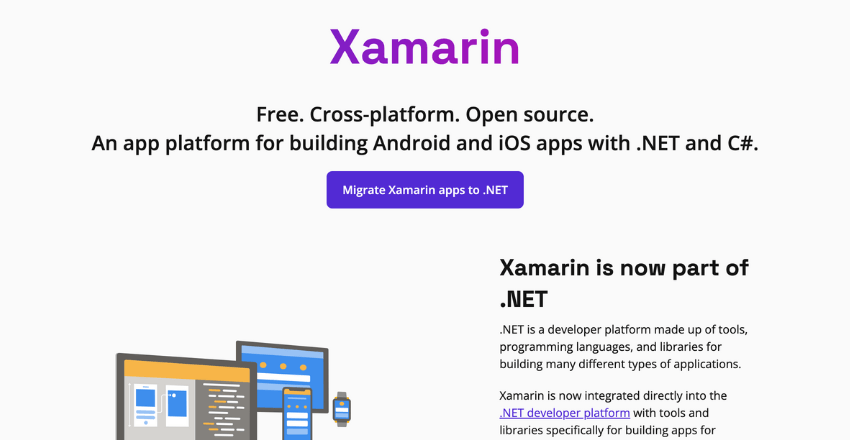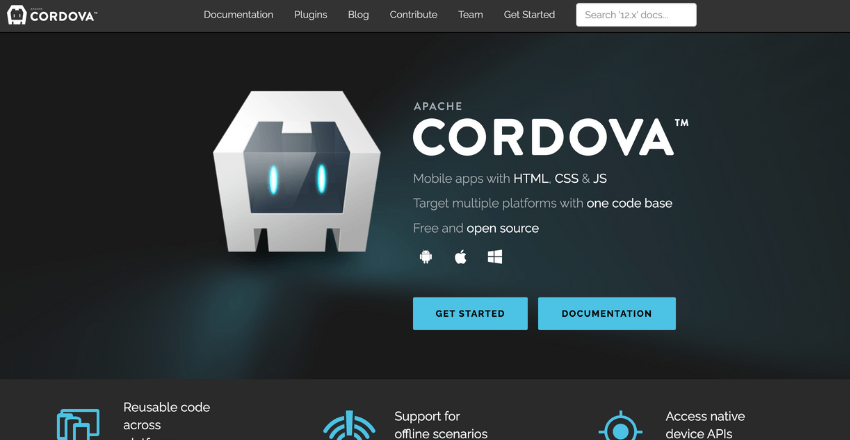 Finding the Right Cross Platform Developer – Secure your project’s success by choosing the right cross platform developer. Look for expertise in multiple frameworks, adaptability, and a proven track record.
Finding the Right Cross Platform Developer – Secure your project’s success by choosing the right cross platform developer. Look for expertise in multiple frameworks, adaptability, and a proven track record.
When choosing to develop a mobile application, a key decision lies in selecting the right cross platform development framework. With the evolving landscape of devices and platforms, it is crucial to choose the most efficient multi-platform solution that meets the unique needs of your project.
Framework selection includes a variety of factors such as compatibility, functionality, scalability, and user experience. Therefore, finding the right cross platform developer with the right expertise and experience can have a significant impact on the success of the application development process.
Key Takeaways:
- Choosing the right framework is crucial for developing an efficient multi-platform solution.
- Framework selection considerations include compatibility, functionality, scalability, and user experience.
- Finding the right cross platform developer with expertise and experience can significantly impact the success of your project.
Benefits of Cross Platform Development
Cross platform development frameworks offer numerous benefits for businesses looking to create efficient multi-platform solutions. These frameworks allow developers to write code once and use it across different platforms, such as Android and iOS, saving time and effort.
One of the key advantages of cross platform development is cost-effectiveness. Building a separate app for each platform can be expensive and time-consuming. With a cross platform framework, developers can create a single app that runs seamlessly across different platforms, reducing costs and increasing ROI.
Cross platform development also offers faster time-to-market, as developers can build and deploy apps more quickly. This enables businesses to stay ahead of their competitors and capitalize on emerging trends and opportunities in the market.
Another advantage of cross platform development is wider reach. By using a single codebase for multiple platforms, businesses can reach a wider audience, increasing their chances of success.
Top Cross Platform Development Frameworks

When it comes to choosing the right cross platform development framework, there are several options to consider. Here are some of the top frameworks that developers use to build efficient multi-platform solutions.
React Native
React Native is one of the most popular cross platform development frameworks, backed by Facebook. It allows developers to build high-performance apps for multiple platforms using a single codebase. The framework uses JavaScript and supports both iOS and Android platforms, making it an ideal choice for many businesses that need to develop an app for both platforms.
Flutter
Flutter is Google’s UI toolkit for building natively compiled apps for mobile, web, and desktop from a single codebase. It uses Dart, a client-optimized programming language that is gaining in popularity, to create fast and beautiful interfaces. Flutter is ideal for businesses that require high-performance, highly customized apps on both Android and iOS platforms.
Xamarin
Xamarin is a Microsoft-based platform that allows developers to build high-quality, fully native apps for iOS, Android, and Windows using a shared C# codebase. It offers fast time-to-market and is a great choice for businesses that require enterprise-level security and integration with Microsoft technologies.
Apache Cordova (PhoneGap)
PhoneGap rebranded as Apache Cordova is a popular framework for building cross-platform mobile apps using web technologies such as HTML, CSS, and JavaScript. It provides a simple way to create apps quickly, making it ideal for smaller projects and rapid prototyping. Apache Cordova is compatible with different platforms such as Android, iOS, and Windows.
When selecting a framework, businesses should consider factors such as performance, ease of integration with existing systems, the size of the developer community, and the developer skillset. By selecting the right framework, a business can save time and money, and deliver a top-quality app that will work seamlessly across multiple platforms.
React Native: A Versatile Framework for Cross Platform Development

React Native is a popular open-source framework for building applications on multiple platforms using a single codebase. Developed by Facebook, it allows developers to use the same codebase for iOS, Android, and web applications, resulting in significant time savings and cost-effectiveness.
One of React Native’s key features is its near-native performance. It uses a bridge to communicate between the JavaScript code and the native code of the platform, resulting in faster rendering and reduced load times. Additionally, React Native’s modular approach to building UI components enables code reusability and faster development times.
React Native’s compatibility with third-party libraries and tools is another advantage. It integrates easily with popular tools like Redux and Expo, making it easier for developers to build complex applications. Its large and active community also ensures regular updates and bug fixes, and provides solutions to common development problems.
Benefits of React Native Framework Selection
React Native is an ideal choice for developers seeking a versatile, efficient, and high-performance cross platform development framework. Its key benefits include:
- Code reuse across multiple platforms, saving significant development time and minimizing errors.
- Near-native performance for fast rendering and reduced load times.
- Modular approach to building UI components for code reusability and faster development times.
- Compatibility with popular tools and libraries, making it easy to build complex applications.
- A large and active community, providing regular updates and bug fixes, and solutions to common development problems.
Overall, React Native is a versatile framework suitable for building applications of various sizes and complexities. Its advantages include its near-native performance, compatibility with third-party tools, and modular approach to building UI components. React Native is an excellent choice for developers seeking a framework that streamlines cross platform development and reduces costs while maintaining high performance and functionality.
Flutter: Google’s Powerful Framework for Cross Platform Development

When it comes to cross platform development frameworks, Flutter has become a buzzword in the industry. Developed by Google, Flutter has gained popularity among developers due to its robustness, high performance, and compatibility with different platforms.
Flutter allows developers to create visually attractive and engaging interfaces with ease, making it ideal for mobile app development. It offers a wide range of pre-built widgets, which can be customized to match the specific requirements of a project. This saves time and effort, making development more efficient.
One of the biggest advantages of Flutter is that it allows for fast development cycles. Developers can see the changes made to the code in real time, making it easy to iterate quickly. This results in a quicker turnaround time, which is essential in today’s fast-paced business world.
Why Choose Flutter for Cross Platform Development?
Flutter’s popularity stems from its ability to offer many benefits to developers:
- Efficient performance, making it suitable for complex projects
- Compatibility with multiple platforms, including iOS and Android
- Easy to learn and use, with extensive documentation and resources available
- Highly customizable widgets that can be adapted to fit specific project needs
- Allows for hot reloading, which increases development speed and efficiency
Furthermore, Flutter is continuously improving, with regular updates and new features being added to satisfy developer feedback. The community of developers and contributors is also rapidly growing, making it a reliable and well-supported framework in the industry.
In conclusion, If you’re looking for a cross platform development framework that is versatile, efficient, and reliable, then Flutter is definitely worth considering. Its compatibility with different platforms, high performance, and ease of use make it a popular choice for many developers.
Xamarin: Microsoft’s Robust Framework for Cross Platform Development

Xamarin is a popular cross platform development framework that allows developers to build native mobile applications for multiple platforms using a single shared C# codebase. This framework stands out for its robustness, offering full access to the device’s hardware features and APIs, including camera, sensors, and location services.
As a Microsoft product, Xamarin integrates seamlessly with Visual Studio, making it an attractive choice for developers familiar with Microsoft technologies. Moreover, Xamarin offers a rich set of libraries, tools, and components, providing developers with the flexibility and scalability needed to build enterprise-level applications.
One of the key advantages of Xamarin is its ability to deliver high-performance native applications, achieved through its use of AOT (Ahead-of-Time) compilation, which compiles the code into native binaries, optimizing performance and reducing load times. This results in faster app startup, smoother animations, and improved overall user experience.
Benefits of Xamarin
Choosing Xamarin as a cross platform development framework offers several benefits, including:
- Full access to device’s hardware features and APIs
- High-performance native applications
- Seamless integration with Visual Studio and Microsoft technologies
- Rich set of libraries, tools, and components
- Reduced development time and cost
Use Cases for Xamarin
Xamarin is ideal for building complex native applications that require full access to the device’s hardware features and APIs. It is particularly suitable for enterprise-level applications with high performance and scalability requirements. Examples of such applications include:
- Medical apps that require access to the device’s sensors and camera
- E-commerce apps that need to handle large volumes of user data and transactions
- Transportation apps that require real-time location and mapping services
Overall, Xamarin’s robustness, scalability, and full access to device features make it an excellent choice for developers seeking to build high-performance, native applications for multiple platforms.
Apache Cordova: An Ideal Framework for Quick Cross Platform Development

When it comes to selecting the right cross platform development framework, there are many factors to consider. For smaller scale projects or rapid prototyping, Apache Cordova is an excellent choice for its simplicity and ease of use without requiring extensive development experience. It is a framework that utilizes web technologies like HTML, CSS, and JavaScript to develop mobile apps for different platforms.
Apache Cordova offers many benefits, including:
- Cost-effectiveness
- Compatibility with various mobile platforms
- Quick development time
- Ability to access native device functionality like camera or GPS
One of the essential benefits of Apache Cordova is that it allows developers to write code once and deploy it across multiple platforms like iOS, Android, or Windows Phone. This eliminates the need for writing separate code for each platform, reducing development time and costs.
Another advantage of Apache Cordova is its large community support, with many plugins available for easy integration and additional functionalities. It’s also straightforward to set up and use, making it ideal for prototyping or developing smaller apps.
While Apache Cordova may not be the best choice for larger, more complex projects, it is a perfect solution for developers who are just starting with cross platform development or working on smaller-scale applications.
Factors to Consider When Choosing a Cross Platform Framework
Choosing the right cross platform development framework can make all the difference in the efficiency and success of your multi-platform project. Here are some important factors to consider when making your selection:
Performance
One of the most critical factors to consider when choosing a cross platform framework is performance. The framework should be able to deliver native-like performance on each platform it supports. Performance can be affected by various factors such as the size of the codebase, the number of dependencies, and the way the framework interacts with the underlying platform’s APIs.
Community Support
Another crucial factor is the level of community support. Frameworks with active and engaged communities are more likely to receive regular updates, bug fixes, and new features. They also have extensive documentation, support forums, and other resources that can help developers overcome challenges and build better apps.
Developer Skillset
The skillset of your developers is also a key factor to consider when selecting a cross platform framework. Some frameworks may be more suited to developers with a background in web development, while others may require experience in specific programming languages or development environments. Make sure to consider the skillset of your team before making a choice.
Scalability
Scalability is another critical factor to consider when selecting a cross platform framework. The framework should be flexible enough to handle the needs of your project as it grows and evolves. It should also be able to support new features and functionalities as they become available.
By considering these factors, you can narrow down your options and select the best cross platform framework for your project and team.
Choosing the Right Cross Platform Developer for Your Project
Choosing the right cross platform developer for your project is crucial for achieving efficient multi-platform solutions. Here are some factors to consider when selecting a developer:
Expertise
Look for a developer who has experience working with cross platform development frameworks and has completed projects similar to yours. Check their portfolio to verify their expertise and ensure they have the necessary skills to meet your project’s requirements.
Communication Skills
Effective communication is vital for successful collaboration between you and your developer. Look for a developer who can communicate clearly and regularly to keep you updated on project progress and address any concerns or issues that arise.
Cost
Consider the developer’s rates and ensure they fit within your budget. However, be wary of developers with unusually low rates, as they may lack the necessary expertise or may not deliver quality work.
Flexibility
Choose a developer who is flexible and can adapt to changes in project requirements or timelines without compromising quality. This is especially important for cross platform development, which may require adjustments based on the specific features and limitations of different platforms.
Community Support
Select a developer who is familiar with the cross platform development framework you have chosen and is active in its community. This ensures that they are up to date with the latest developments and can access support and resources when needed.
By taking these factors into account, you can choose the right cross platform developer who can help you achieve your project’s goals and deliver efficient multi-platform solutions.
External Resources
https://dotnet.microsoft.com/en-us/apps/xamarin
Conclusion

Choosing the right cross platform development framework and developer is crucial for achieving efficient multi-platform solutions. In this article, we discussed the benefits of cross platform development, including cost-effectiveness, time efficiency, and wider reach.
When it comes to selecting a framework, we explored the top cross platform development frameworks including React Native, Flutter, Xamarin, and PhoneGap. React Native is a versatile framework suitable for a wide range of use cases, while Flutter is a powerful framework from Google known for its compatibility with different platforms. Xamarin, on the other hand, offers robust capabilities and integration with Microsoft technologies, while PhoneGap is an ideal framework for quick prototyping and smaller scale projects.
When selecting a framework, it’s important to consider factors such as performance, community support, and developer skillset. And when choosing a cross platform developer, consider their expertise, portfolio, and communication skills.
Overall, selecting the right cross platform development framework and developer is crucial for efficient multi-platform solutions. By considering the factors discussed in this article, you can make an informed decision that will benefit your project and company in the long run.
FAQ

Q: What is cross platform development?
A: Cross platform development refers to the process of creating software applications that can run on multiple platforms, such as iOS, Android, and web browsers. It allows developers to write code once and deploy it across different operating systems, saving time and effort.
Q: Why is choosing the right cross platform development framework important?
A: Choosing the right cross platform development framework is important because it determines the efficiency and effectiveness of multi-platform solutions. Different frameworks have their own features, performance characteristics, and compatibility with various platforms, so selecting the right one ensures optimal results for your project.
Q: What are the benefits of cross platform development?
A: Cross platform development offers several benefits, including cost-effectiveness, as it allows for code reuse across multiple platforms, saving development time and resources. It also enables faster time-to-market, as developers can create and update applications simultaneously for different platforms. Additionally, cross platform development allows for wider reach, as apps can be deployed on various operating systems, reaching a larger audience.
Q: What are the top cross platform development frameworks?
A: Some of the top cross platform development frameworks include React Native, Flutter, Xamarin, and PhoneGap. These frameworks provide developers with tools and libraries to create applications that can run on multiple platforms, offering flexibility and efficiency in development.
Q: What is React Native and why is it popular in cross platform development?
A: React Native is a versatile framework for cross platform development. It allows developers to build native-like mobile applications using JavaScript and reusable components. React Native has gained popularity due to its performance, ease of use, and strong developer community support.
Q: What is Flutter and why is it popular in cross platform development?
A: Flutter is Google’s powerful framework for cross platform development. It uses Dart programming language and provides a rich set of pre-designed widgets and tools for building attractive and performant applications. Flutter has gained popularity for its fast development speed, native-like performance, and its ability to create visually appealing user interfaces.
Q: What is Xamarin and what makes it a robust framework for cross platform development?
A: Xamarin is Microsoft’s robust framework for cross platform development. It allows developers to build apps using a single codebase in C#, which can be shared across multiple platforms. Xamarin provides seamless integration with Microsoft technologies and offers access to native APIs, making it appealing for enterprise-level developers.
Q: What is PhoneGap and why is it suitable for quick cross platform development?
A: PhoneGap is an ideal framework for quick cross platform development. It uses web technologies such as HTML, CSS, and JavaScript to create mobile applications. PhoneGap allows developers to quickly prototype and build small scale projects, making it a convenient choice for rapid development.
Q: What factors should be considered when choosing a cross platform framework?
A: When selecting a cross platform development framework, factors such as performance, community support, developer skillset, compatibility with target platforms, and the specific requirements of your project should be considered. It is important to choose a framework that aligns with your project goals and can deliver the desired performance and functionality.
Q: How can I choose the right cross platform developer for my project?
A: To choose the right cross platform developer for your project, consider their expertise in the selected framework, their portfolio, and their communication skills. Look for developers who have experience in building cross platform applications and can demonstrate their ability to deliver high-quality results.
Q: Why is selecting the right cross platform development framework and developer important for efficient multi-platform solutions?
A: Selecting the right cross platform development framework and developer is crucial for achieving efficient multi-platform solutions. The framework determines the performance and compatibility of the application across different platforms, while the developer’s skills and experience ensure the successful implementation of the chosen framework. Choosing the right combination ensures optimal results and saves time and resources in the development process.
William is a highly accomplished technical author specializing in cross-platform app development. With a rich background in the tech industry, he has worked at prestigious companies like Uber and Facebook, where he honed his skills as an iOS developer since 2009. Throughout his career, William has been an advocate for leveraging frameworks like React Native and Xamarin to create innovative and efficient cross-platform mobile apps.
Having pursued a degree in Computer Science and Mathematics at Caltech, William is equipped with a strong educational foundation. Currently residing in LA with his two daughters, he finds solace in exploring the scenic hills through hiking. Passionate about knowledge sharing, William not only builds cutting-edge applications but also takes pleasure in teaching students how to develop their own cross-platform mobile apps. His expertise, combined with his dedication to empowering others, makes him an invaluable asset in the field of app development.







